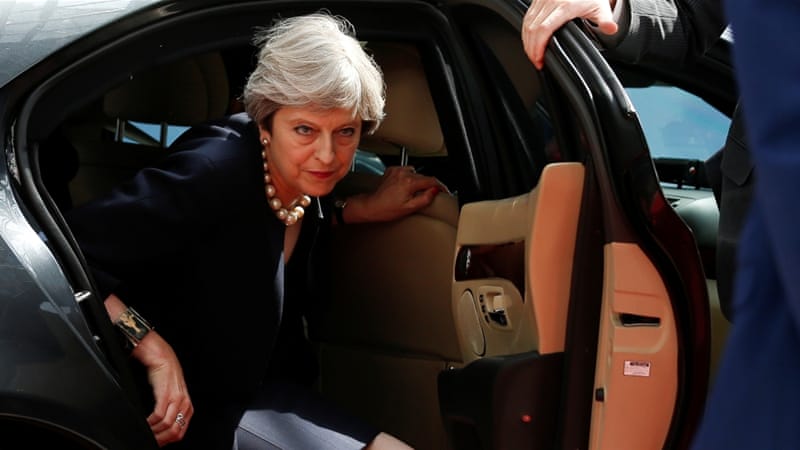will be asked to leave the country at the point that the UK leaves the EU”, a British government source said.
|
|
|
Was the UK election a rejection of Brexit?
|
“The UK’s position represents a fair and serious offer and one aimed at giving as much certainty as possible to citizens who have settled in the UK, building careers and lives and contributing so much to our society,” May told EU leaders.
The EU has made a priority of the rights of an estimated three million Europeans living in Britain, whose futures have been thrown into doubt by its shock vote last year to leave the 28-nation bloc.
Under May’s plan, Europeans who have been living in Britain for five years at the time of a yet to be specified cut-off date would be entitled to a new “settled status” – granting them permanent rights to healthcare, education, welfare and pensions equivalent to British nationals.
Newer arrivals would be allowed to stay until they had amassed the necessary five years to qualify for settled status too.
Those who arrived after the cut-off date will have a “grace period” of up to two years, during which they can apply for another form of immigration status, such as a work permit.
Collision course
But the Conservative leader, battling to retain her authority after losing her parliamentary majority in a snap vote, also put herself on a collision course with Brussels.
She failed to set a cut-off date for those who are eligible for permanent residence, saying only it would be no earlier than the triggering of the Article 50 process on leaving the EU – March 29, 2017 – and Britain’s formal exit, on course for March 30, 2019.
That will leave some new arrivals unsure of their status.
The UK will reject a demand for the European Court of Justice to oversee the process and any resulting disputes.
In its position paper on EU rights published this month, the European Commission said the court should have “full jurisdiction” over such citizens’ rights.
But May is determined to remove Britain from the ECJ’s reach, insisting that “taking back control” of its laws is one of the reasons Britons voted for Brexit.
AFP news agency reported a British source saying: “The commitments that we made to EU citizens will be enshrined in UK law and enforceable through our highly respected courts.”
Al Jazeera’s Neave Barker, reporting from Brussels, said that – although the EU had been hoping that citizens in the UK would gain access to the ECJ – May has at least now made some kind of outline of her plans on what was one of the vital sticking points of the Brexit negotiations.
“A big hurdle, a big step has been made in the first week of Brexit negotiations – it’s really now for the EU to respond,” he said.
|
|
|
Does the UK election mark the end for Theresa May?
|
May said she expected any offer by Britain to be met with a reciprocal offer from the EU for the one million Britons on the continent, but said she wanted a deal to be done as quickly as possible.
Officials said further details, including on the rights of spouses and children of European citizens, would be published in a government paper on Monday.
Barker said May’s tough talk on Brexit that preceded the recent snap general election has largely gone.
“She is now very much weakened, and as a result of that bruising election result the kind of attitude and the tone that’s being shared here in Europe is being softened too,” he said.
“It looks as if the UK is ready for compromise.”
German Chancellor Angela Merkel called May’s offer on citizen rights after Brexit “a good start”.
Merkel said there was still a lot of work ahead, including the question of a British financial settlement as well as how to manage the border between Ireland and Northern Ireland.
Meanwhile, EU leaders agreed on Thursday the post-Brexit locations of key bank and medical agencies currently based in London would be decided by November, EU president Donald Tusk said.
Source: Al Jazeera and news agencies
